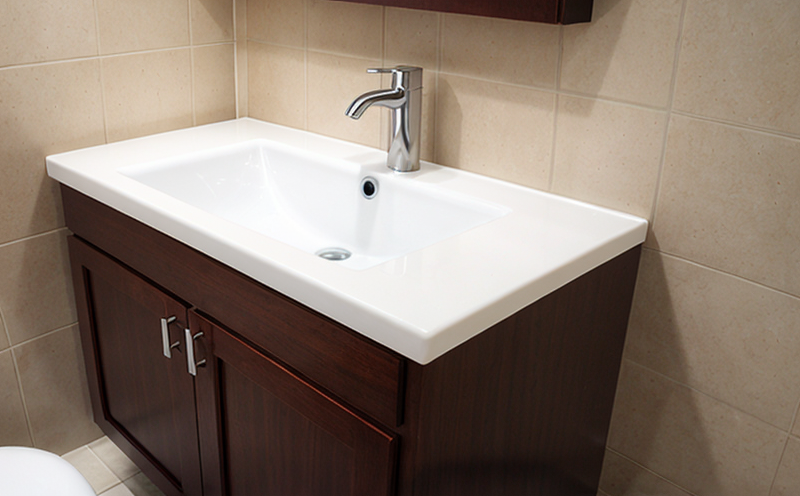ASTM D2863 Flammability Testing of Sanitary Plastics
The ASTM D2863 test method is a critical standard used to evaluate the flammability properties of sanitary plastics. This testing procedure ensures that materials used in bathroom and sanitation applications meet stringent safety requirements, thereby protecting users from fire hazards. The test involves exposing small specimens to controlled conditions of heat and flame, with measurements taken over time to determine their resistance to ignition.
The ASTM D2863 standard provides detailed instructions for preparing the specimens, setting up the testing apparatus, and conducting the actual burn test. Specimens are typically cut from larger pieces of plastic using specific dimensions and tolerances. Once prepared, they undergo a preliminary conditioning process to ensure consistency in moisture content.
The testing apparatus used in ASTM D2863 includes a specially designed burner that applies a controlled flame to the sample. The height of the flame and its duration are meticulously regulated according to standard guidelines. After ignition, the burning rate is carefully monitored using high-speed cameras or photometers, which capture data on how quickly the flames spread across the surface.
The primary outcome of this test is a measurement known as the "flame propagation index," which quantifies the ease with which a flame can travel along the material's surface. Lower indices indicate better fire resistance, meaning less likelihood for the fire to spread rapidly. This value serves as a key metric in determining compliance with relevant regulations.
Compliance with ASTM D2863 is mandatory for manufacturers of bathroom and sanitary products such as toilet seats, bidets, hand dryers, and other fixtures where plastics are exposed directly to potential ignition sources like hot water or electrical components. Non-compliance can lead to product recalls and significant financial losses due to liability claims.
| Application | Description |
|---|---|
| Bathroom Fixtures | Testing ensures the safety of fixtures like bidets and toilet seats. |
| Sanitary Products | Evaluates materials used in hygiene products such as hand dryers. |
| Plumbing Accessories | Verifies the fire resistance of pipes and fittings. |
Industry Applications
- Bathroom Fixtures: Ensuring that materials used in fixtures such as bidets, toilet seats, and hand dryers are safe from fire hazards.
- Sanitary Products: Evaluating the flammability of hygiene products like hand dryers to prevent potential risks associated with direct contact with heat sources.
- Plumbing Accessories: Verifying that pipes and fittings used in plumbing systems can withstand accidental ignition without causing a fire.
Quality and Reliability Assurance
The ASTM D2863 test plays a crucial role in maintaining high standards of product quality and reliability. By ensuring that sanitary plastics meet the specified flammability criteria, manufacturers can be confident that their products will perform safely under real-world conditions.
Regular testing helps identify any inconsistencies or variations in material properties that could compromise safety. This ongoing process allows companies to address issues promptly before they become critical problems. Additionally, compliance with ASTM D2863 fosters trust among consumers by demonstrating a commitment to product safety and regulatory adherence.
Customer Impact and Satisfaction
- Enhanced Safety: Consumers benefit from products that meet stringent flammability standards, reducing the risk of fire accidents.
- Informed Decisions: By selecting compliant products, customers contribute to a safer environment in their homes and public spaces.
- Increased Confidence: Compliance with ASTM D2863 builds consumer confidence in bathroom and sanitation products they purchase.





